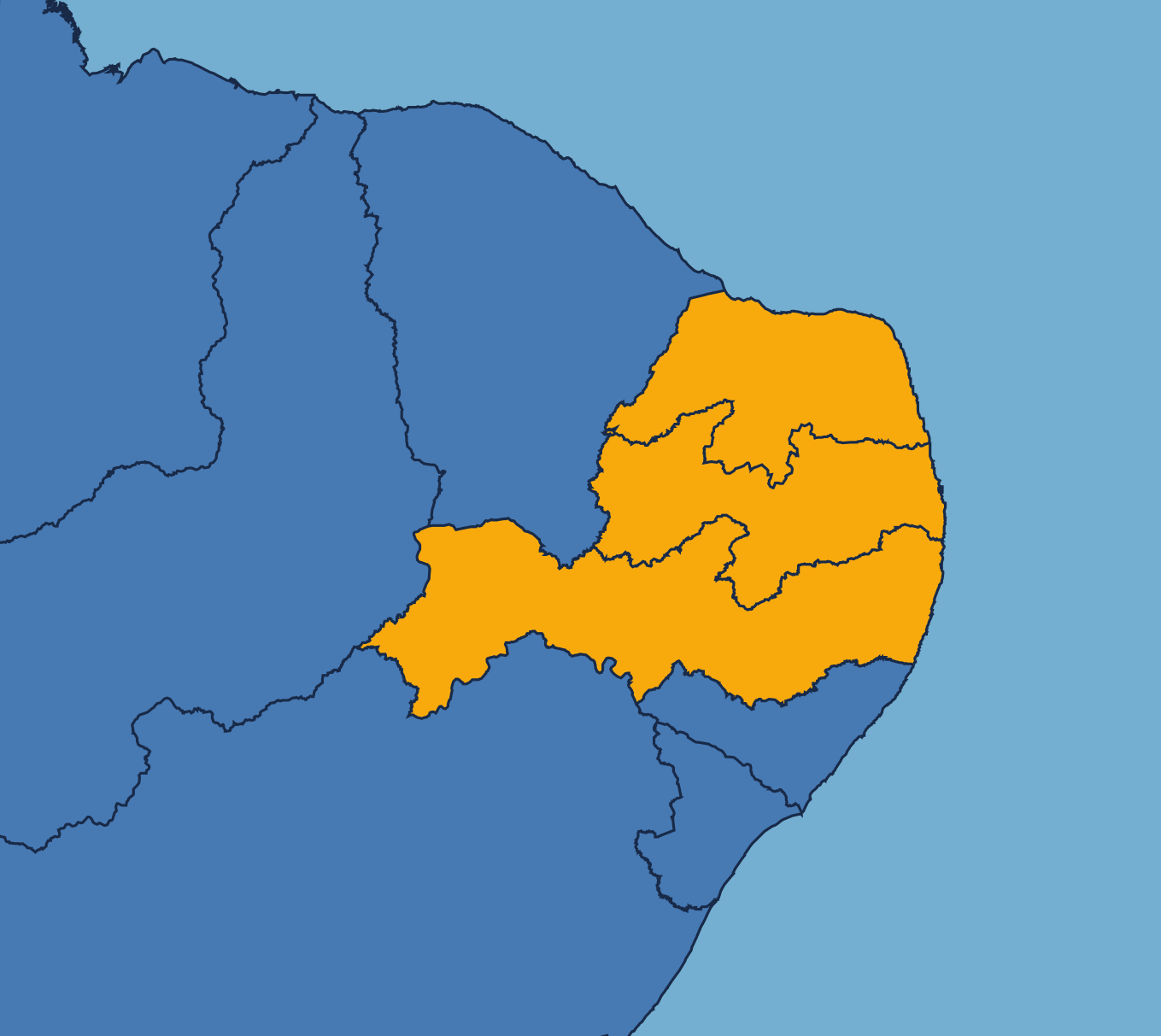Scaling up with integrity: ARI’s advances its agenda of building a global database with robust and comparable living wage estimations
New Living wage estimates released for Northeast Brazil by Anker Research Institute and the Brazilian Center for Analysis and Planning (CEBRAP)
This week, the Anker Research Institute (ARI) - Brazilian Center for Analysis and Planning (CEBRAP) Initiative (hereafter, the ARI-Cebrap Initiative) released ten living income and living wage estimates for three key states in Brazil’s Northeast: Paraíba, Rio Grande do Norte, and Pernambuco. These estimates, funded by IDH Trade, provide robust, regionally grounded values to support the sustainability of livelihoods for workers and farmers in both local labor markets and globally integrated supply chains.
In Pernambuco state, the gross living wage (take-home pay for a full-time worker plus social security contributions and taxes) ranges from R$2,503 in the interior macroregion (PE01, Agreste, Mata, and Sertão) to R$2,977 in the capital and metropolitan area (PE03, Recife), a 19% difference. In Paraíba state, gross living wages range from R$1,968 in Mata Paraibana (PB01) to R$2,624 in the capital macroregion (PB03, João Pessoa), a 33% increase. Rio Grande do Norte state shows the widest range, with gross living wages spanning from R$2,556 in the rural Agreste and Leste macroregion (RN01) to R$3,357 in the capital Natal (RN04), a 31% difference. These variations reflect state regional differences in the cost of housing, food, and non-food expenditures and underscore the need for subnational analysis
The results highlight the strength of ARI to scale the number of living wage estimates in its database using the Anker Methodology®; that is, to increase the coverage of its estimates, in this case at the sub-national level in Brazil, while maintaining their quality and comparability across geographies and time. As the International Labour Organization (ILO) advances its global vision on living wages, the Anker Research Institute (ARI) consolidates as a reliable research organization closely aligned with the ILO’s key principles. ARI has been at the forefront of scalable solutions that preserve the credibility, integrity, and comparability of data across regions and countries.
With international regulations gaining traction, companies will soon be required to identify and address human rights and labor risks– such as inadequate wages– throughout their supply chains. The new Anker living wage estimates for these Brazilian states offer a practical, robust, and context-specific tool to assess risks and act in line with evolving due diligence requirements. They enable buyers, certifiers, and importers to benchmark compensation practices against internationally accepted standards, and help ensure that producers and workers in these regions are not left behind in the global transition toward sustainable and ethical trade.
The Northeast plays a strategic role in export-oriented value chains in Brazil. In Rio Grande do Norte, melon and mango production are important exports to Europe, the U.S., and the Middle East, while fuel oils and marine salt also reach global markets. Pernambuco stands out for its mango and grape exports —particularly to Germany, the Netherlands, and the U.K. — as well as sugarcane-derived ethanol, refined petroleum products, and automobiles. In Paraíba, the leather footwear industry has significant export volumes, especially to Europe and North America.
At the same time, these estimates are essential for local development. They serve as a credible reference for public policy, regional planning, and collective bargaining, and thus empower governments, workers, and businesses to pursue inclusive growth anchored in real living costs.
As the international community follows the ILO’s lead on living wages, the robustness of the Anker Methodology—developed and used by ARI to generate reliable, locally grounded, nationally and internationally comparable living wage estimates—becomes a critical resource, both in Brazil and worldwide. ARI once again demonstrates that it is possible to scale its database of living income and living wage data while maintaining the credibility and precision needed to drive meaningful change.
Did you know?
The Anker Research Institute publishes a single living wage value per region to ensure methodological rigor and avoid sending the misleading message that some workers deserve more than others.
This approach prevents stakeholders from selecting the lowest acceptable value and reinforces the principle that human dignity is universal and indivisible.
Each estimate is based on a typical family size and the average number of full-time workers per household in the region. No essential items are excluded from the consumption basket—except tobacco—ensuring alignment with local living standards.
Drawing from official data sources and in-field research, the methodology captures the heterogeneity of living costs across regions, from remote rural areas to major urban centers.
No data extrapolation or imputation from other regions is used. Every estimate is unique!

